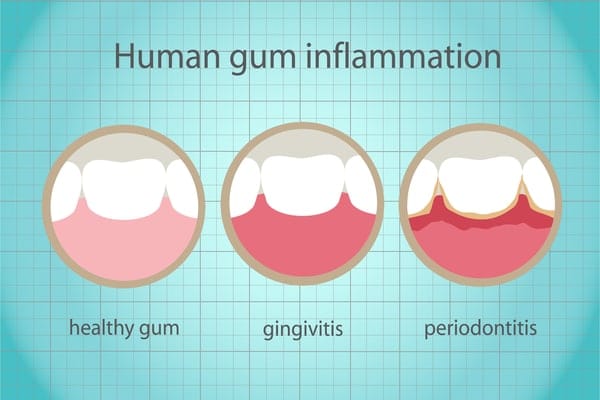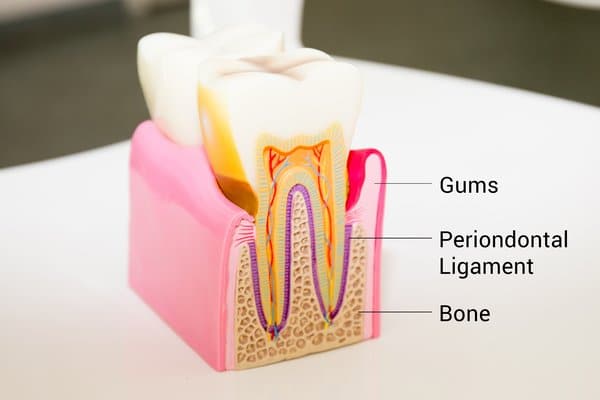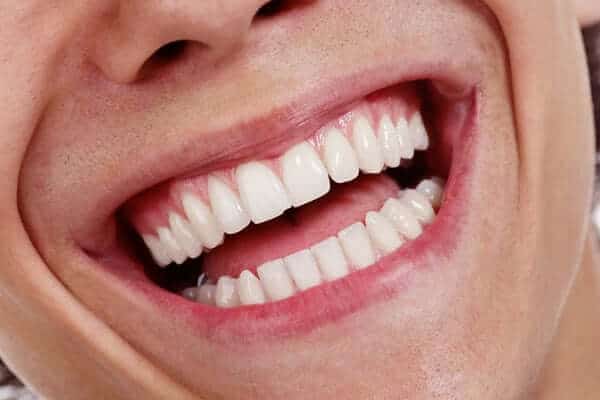Singapore Dental Gum Treatment For Periodontal Diseases
Gum Treatment
Did you know 8 out of 10 people have gum disease? Yes, you read that right. The Adult Oral Health Survey 2003 conducted by the Singapore Health Promotion Board showed that 85% of Singaporeans have periodontal (gum) disease.
Periodontal disease is a chronic infection that destroys the supporting bone and attachment tissues that hold your teeth in place in your mouth.
The milder form of gum disease is also known as gingivitis, which is reversible, and the more severe form is called periodontitis. In advanced stages, the bone supporting the teeth is irreversibly lost. If left untreated, gum disease can lead to premature tooth.
The good news is that you can keep your natural teeth with proper care.
At The Dental Studio, our periodontist specialises in the prevention, diagnosis and treatment of periodontal diseases, and the placement and maintenance of dental implants.
We also provide aesthetic and cosmetic gum procedures, which can beautify your smile.
Did you know 8 out of 10 people have gum disease? Yes, you read that right. The Adult Oral Health Survey 2003 conducted by the Singapore Health Promotion Board showed that 85% of Singaporeans have periodontal (gum) disease.
Periodontal disease is a chronic infection that destroys the supporting bone and attachment tissues that hold your teeth in place in your mouth.
The milder form of gum disease is also known as gingivitis, which is reversible, and the more severe form is called periodontitis. In advanced stages, the bone supporting the teeth is irreversibly lost. If left untreated, gum disease can lead to premature tooth.
The good news is that you can keep your natural teeth with proper care.
At The Dental Studio, our periodontist specialises in the prevention, diagnosis and treatment of periodontal diseases, and the placement and maintenance of dental implants.
We also provide aesthetic and cosmetic gum procedures, which can beautify your smile.
How Does Gum Disease Affect Your Teeth?
Your teeth are supported by:
- Gums (gingiva)—The pinkish soft tissue surrounding your teeth. They are important for your oral health, yet, they can become infected if not taken care of.
- Periodontal attachment—This ligament attaches your tooth to the supporting bone.
- Bone—Your teeth are supported by your jaw bone. It provides a socket for the roots of your teeth. Bone can be irreversibly lost if gum disease is at an advanced stage.
How Does Gum Disease Affect Your Teeth?
Your teeth are supported by:
- Gums (gingiva)—The pinkish soft tissue surrounding your teeth. They are important for your oral health, yet, they can become infected if not taken care of.
- Periodontal attachment—This ligament attaches your tooth to the supporting bone.
- Bone—Your teeth are supported by your jaw bone. It provides a socket for the roots of your teeth. Bone can be irreversibly lost if gum disease is at an advanced stage.
What Are The Symptoms of Gum Disease?
Gum disease often has no symptoms at the start. When symptoms begin, gum disease is often at a more advanced and difficult to treat stage.
Common signs and symptoms of periodontal disease include:
- Bleeding gums during brushing
- Red, swollen or tender gums
- Gum abscesses (gum boils)
- Pus from between the teeth and gums
- Longer looking teeth (gum recession)
- Persistent bad breath
- Vague discomfort – like dull ache or itchiness on the gums
- A change in the way your teeth fit together when you bite or chew.
- Loose teeth
- Spacings between teeth over time

What Are The Symptoms of Gum Disease?

Gum disease often has no symptoms at the start. When symptoms begin, gum disease is often at a more advanced and difficult to treat stage.
Common signs and symptoms of periodontal disease include:
- Bleeding gums during brushing
- Red, swollen or tender gums
- Gum abscesses (gum boils)
- Pus from between the teeth and gums
- Longer looking teeth (gum recession)
- Persistent bad breath
- Vague discomfort – like dull ache or itchiness on the gums
- A change in the way your teeth fit together when you bite or chew.
- Loose teeth
- Spacings between teeth over time
What Causes Gum Disease?
There is a common misconception that the elderly are more prone to gum disease. However, that’s not true. Gum disease is caused by a build-up of dental plaque.
Dental plaque is the sticky and whitish film that forms on teeth. If not removed during daily oral care, plaque turns into a hard deposit, known as tartar, over time. Tartar is very hard and can only be removed with professional cleaning.
Dental plaque also contains millions of bacteria, which produce toxins that irritate the gums and can cause infection. This can cause an inflammatory response in the gums, such as swelling and bleeding. In more advanced stages, the toxins destroy the tissues around the teeth, including the bone supporting them.
Thus, anyone who does not practice good oral hygiene habits is at risk of gum disease, whether they are children or elderly.
Risk factors that will increase the chances of developing periodontal diseases include:
- Poor flossing and tooth brushing habits (either too infrequent or using improper techniques).
- Smoking—it affects your body’s ability to repair damaged gum tissue
- Uncontrolled diabetes—can affect the body’s ability to utilise blood sugar, which can make it harder to heal from infections such as gum disease.
- Hormonal changes (pregnancy).
- Medications such as anti-depressants, anti-convulsions, certain heart medications and medications that prevent organ transplant rejection.
How Do I Prevent Periodontal Disease?
Dentists recommend a dental check-up at least once or twice a year. It can allow dentists to detect any potential diseases early and ensure your oral health is good. Patients who used to have gum disease may require more frequent professional dental visits.
In the meantime, you can maintain daily oral care. Proper brushing and interdental cleaning are essential to prevent dental plaque accumulation.
What Is The Treatment For Periodontal (Gum) Disease?
The goal of periodontal treatment is to arrest the progression of the disease and to restore the health of your teeth and gums. The treatment of gum disease depends on the severity of the disease.
In the mild form, known as gingivitis, there is minimal to no loss of bone supporting the teeth. The treatment will be routine scaling and polishing and performing good personal oral hygiene habits. Regular 6 monthly visits to the dentist are recommended.
In the severe form of gum disease with loss of supporting bone, known as periodontitis, the treatment will be more complex.
This will include:
- Root planing: Non-surgical deep cleaning of the involved teeth under local anaesthesia to remove plaque, calculus and bacteria from beneath the gumline.
- Following a complete full mouth treatment, your gum condition will be reviewed in 2 months to assess the outcome of the initial treatment.
- Depending on the outcome, further treatment may be required ranging from surgical intervention to antibiotics for the unresolved tooth sites. In cases with a good outcome, the patient will be placed on an individualised maintenance programme with a prescribed time interval.
- Good personal oral hygiene habits and regular professional maintenance are essential for the stability and longevity of the whole therapy.
This surgery aims to reconstruct bone that was lost around the teeth. It may be performed if your condition does not improve after the initial non-surgical periodontal therapy. That means you have persistent deep pockets and loss of supporting bone.
Not all patients will require this phase of treatment, and not all patients are suitable as well. The periodontist will determine your suitability for this.
The surgery therapy could include:
- Possible removal of excess gum tissue to reduce the deep pockets around the teeth, enabling easier home care.
- Rebuilding the supporting bone that is lost.
Once a patient with gum disease, always a patient with gum disease. Periodontal disease is a chronic condition and may recur without regular careful maintenance.
Thus, even if the disease has been arrested (stopped), we will monitor your gum health regularly to ensure the infection stays under control. At each visit, we will examine your mouth and professionally remove tartar and plaque. This ensures your gum condition stays under control.
Also, you will need to maintain excellent daily oral hygiene habits for a stable gum condition for life!
These procedures “grow” the teeth’s supporting structures (bone/attachment), which were lost due to periodontal (gum) diseases.
It serves to improve the support of your natural set of teeth so that they can be retained and stay functional for a longer period of time.
Techniques include the use of membrane and bone grafts or even enamel matrix derivative to promote the re-growth of the part of the bone and supporting tissues.
Becoming Free of Gum Disease
You can enjoy a better quality of life by preventing gum disease. That’s why brushing and flossing is important!
However, if you have gum disease, our periodontist will create a personalised treatment plan for your case. We do our best to save natural teeth unless the disease is too advanced.
Book for an appointment below to check for gum disease or to get a customized treatment plan.
Doctors Caring For You
Dr Tan Wah Ching
Periodontist
(Gum Specialist)
Dr Tan Wah Lay
Senior General Dentist
(Master of Dental Surgery in Implant Dentistry)






